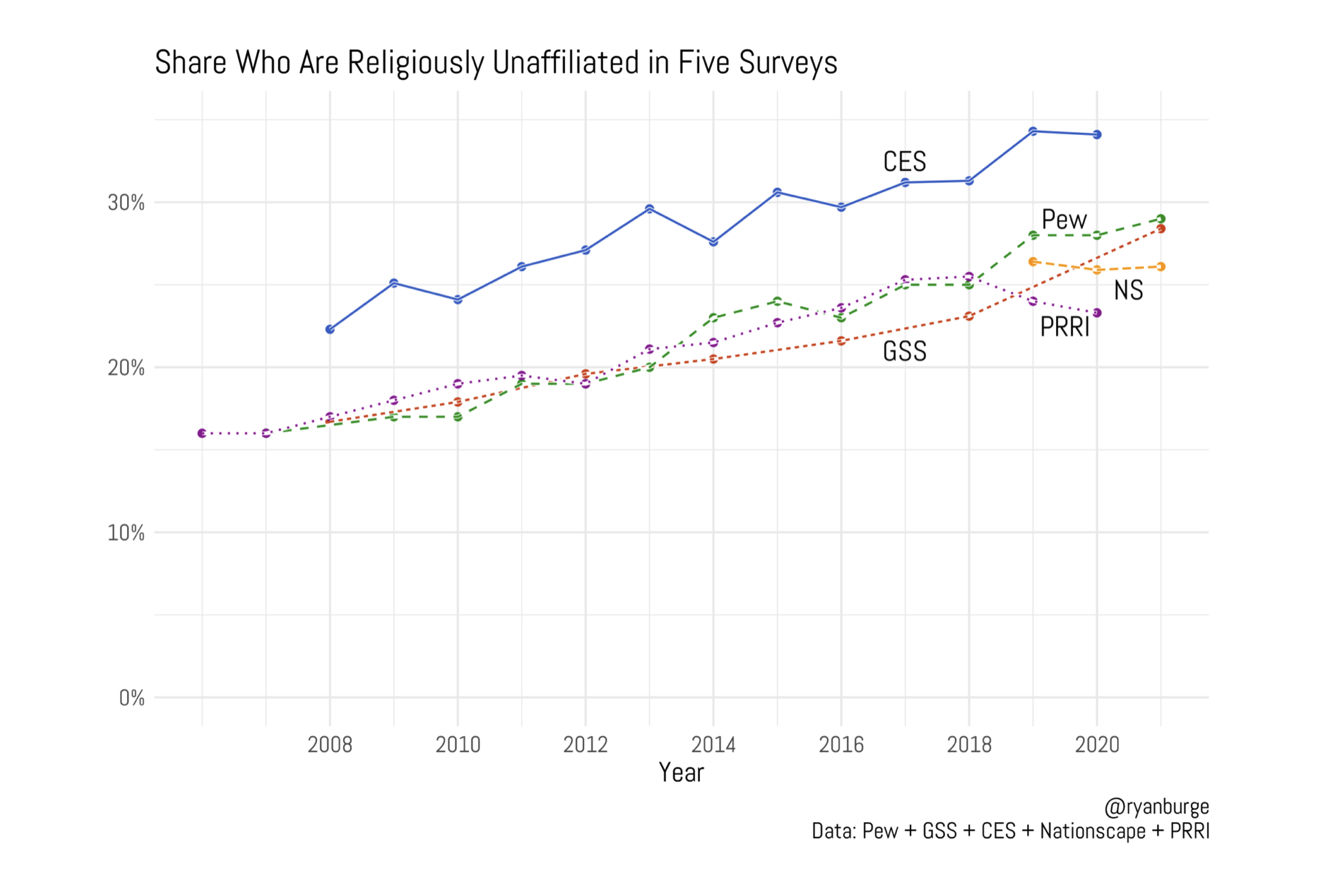Trust me on this: We haven’t even started the process of asking crucial questions about how the coronavirus pandemic has affected life in traditional religious institutions and congregations.
Logically enough, that means we haven’t even started trying to find answers to those questions in surveys and statistics. Some of those answers may only be seen in hindsight, way in the future.
But you have to start somewhere. The goal of this “think piece” post is to point readers to an thought provoking essay at the website of The Gospel Coalition by political scientist and GetReligion contributor Ryan Burge. The headline there: “Did the Pandemic Wreck the Church?”
Before we go there, let me remind readers of a related question that I asked earlier this week at the end of this post: “Ask this: Why did many flocks survive or thrive in pandemic, while others were hit hard?” I was reacting to this passage in an Associated Press report:
… A September survey of 1,000 protestant pastors by the evangelical firm Lifeway Research found about half of congregations received roughly what they budgeted for last year, with 27% getting less than anticipated and 22% getting more.
So the pandemic didn't crash everyone, in terms of church life. Thus, I asked:
What churches managed to grow? Were there church-growth experts with any theories as to why this happened?
My predictions: Look for children and converts.
Burge is responding to religious leaders who are being tempted to assume that everything was going fine — until that whole COVID-tide thing.
Here is his overture:
What effect will the coronavirus pandemic have on the future of American religion? Our country has not seen such a radical and abrupt shift in behavior in the last hundred years. Suddenly almost all churches, mosques, and synagogues in the U.S. suspended congregational meetings.
There’s ample reason to believe this may have had a galvanizing effect on American religion. There’s no doubt that many used the first few weeks of lockdown to seriously contemplate their happiness, their faith and how they want to live their lives. Maybe some recognized a spiritual void and yearned to return to worship.
On the other hand, others may have stopped attending church for the first time in their lives and found that they didn’t miss having a church home.
While it’s still far too early to declare whether the pandemic led to a widespread defection from America’s houses of worship, initial survey results don’t seem to show a dramatic rise in the share of people who declare no religious affiliation (“nones”).
This leads into very traditional Burge-ian territory, if I can coin that word, as in research from the Cooperative Election Study, the Pew Research Center, the Nationscape survey, Public Religion Research Institute and the General Social Survey.
You will need to read the whole piece, of course. But here is another major chunk to push you in that direction.
When looked at broadly, it’s hard to find any real evidence that the pandemic led to any sort of widespread exodus from American religion. Only the General Social Survey showed a marked increase, and that’s likely more about a change in survey methodology than any real shift in the composition of American religion.
But I can test that assumption with a lot more granularity using the Nationscape survey. What is amazing about Nationscape is that it wasn’t all collected in a short window. Instead, the data was collected through a series of weekly surveys that ran from July 2019 through the first week of January 2021. Each survey wave represented about 6,000 respondents. This means it’s possible to track social change with specificity both before and after the COVID-19 lockdowns.
When each week’s nones are calculated, there is one clear conclusion: things didn’t shift that much from the summer of 2019 through the beginning of 2021.
Want more?
The answer should be yes, especially if you, the reader, are a journalist, a religious leader or an academic in a related field.
CONTINUE READING: “Did the Pandemic Wreck the Church?”, by Ryan Burge at The Gospel Coalition website.



